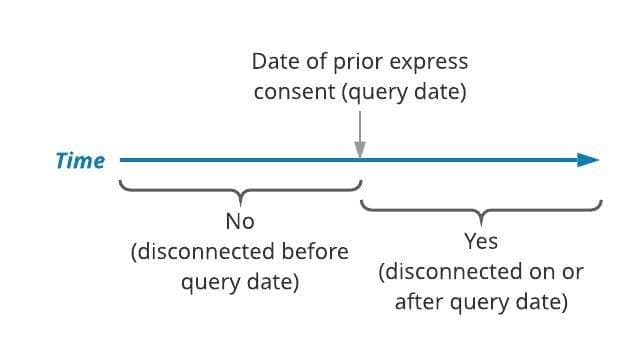Reassigned Numbers Database affordability
Using the Reassigned Numbers Database can be very expensive. Not using it can be even more expensive. Can this be fixed? This article reviews the problems and proposed changes made in a recent waiver request.
The filing was made by Hustle, a peer-to-peer text messaging business. Hustle’s filing is a request for waiver on the fee structure.
What’s wrong with the fee structure? Let’s look at how the RND works, then consider how that affects some callers.
How the Reassigned Numbers Database works
The RND is updated monthly with data from telephone number service providers:
- Telephone number service providers are required to send a telephone number report on the 15th day of each month.
- This report must include telephone numbers permanently disconnected and the disconnection date for each number.
- Each monthly report must include disconnections that took place since the previous monthly report through the 10th of the current month.
The RND is checked by callers, or their agents, to avoid calling numbers that were disconnected and may have been reassigned.
Checking the RND gives callers some liability protection from TCPA lawsuits. If a caller calls reassigned numbers and did not check the RND before these calls, then their legal risk is huge.
When a caller checks the RND, they provide:
- Telephone number
- Date of prior consent
- Company ID of the caller
The Company ID is very important. It’s used to record that that company checked that phone number before calling. It gives that company liability protection from TCPA lawsuits.
The RND query result will be Yes, No, or No Data. The No result is the important one—it means that the number was disconnected since the date of prior consent. The caller should not call that number.

Figure 1. RND Query Logic
The Yes result means that the number was disconnected, but the most recent disconnect date is before the date of prior consent. No Data means the number wasn’t found in the RND and hasn’t been reported as disconnected. With either result, it’s ok to call.
Using the RND can get expensive quickly
In their waiver request, Hustle identified a few issues that make the RND quite expensive:
- You must check a number for each Company ID. You can’t check a number once and use the result for multiple Company IDs.
- The Reassigned Numbers Order requires a 45-day aging period for permanently disconnected numbers before they can be reassigned. This means you must recheck a number at least every 45 days.
- The RND uses a pull model. Every number to be called must be queried to pull a result from the RND. A push model alternative would send only newly reassigned numbers to subscribers on a regular basis.
For these reasons, a messaging service like Hustle would require a RND subscription for 30 million queries per month or more, which would cost $30,000 per month.
Hustle provided a range of suggestions to make the RND affordable:
- Push newly reassigned numbers to subscribers.
- Query a number once and allow the result to be used with multiple clients.
- Extend the aging period for reassigned numbers

Considerations
Would the proposed changes work?
The threat of expensive TCPA lawsuits and the safe harbor afforded by checking the RND are powerful incentives to use it. Safe harbor protection drives everything.
The current RND process provides an audit trail for RND usage by calling company ID. If RND usage weren’t logged for each company, how would they prove that they checked the RND? How would a court decide that the caller deserves safe harbor protection?
The proposed changes would provide a more efficient process, but they wouldn’t provide an audit trail for safe harbor eligibility. There goes the motivation.
Extending the 45-day aging period might help a bit, but it seems unfair to ask telephone number providers to sit on unused numbers for too long.
Is there another way to make the RND affordable while preserving the incentive for using it?
Why not just lower the price?
Are the current prices necessary to cover the costs of the RND? Are there more cost-effective ways to keep the RND up and running?
More information
- Hustle request for waiver
- Reassigned Numbers Database price changes. This blog post analyzes the new RND pricing scheduled to take effect on April 27, 2022.
- Reassigned Numbers Database website
TransNexus solutions
TransNexus is a leader in developing innovative software to manage and protect telecommunications networks. The company has over 20 years’ experience in providing telecom software solutions including toll fraud prevention, robocall mitigation and prevention, TDoS prevention, analytics, routing, billing support, STIR/SHAKEN and SHAKEN certificate services.
Contact us today to learn more.
Our STIR/SHAKEN products:
- Work with your existing network
- Support SIP and TDM
- Affordable, easy to deploy